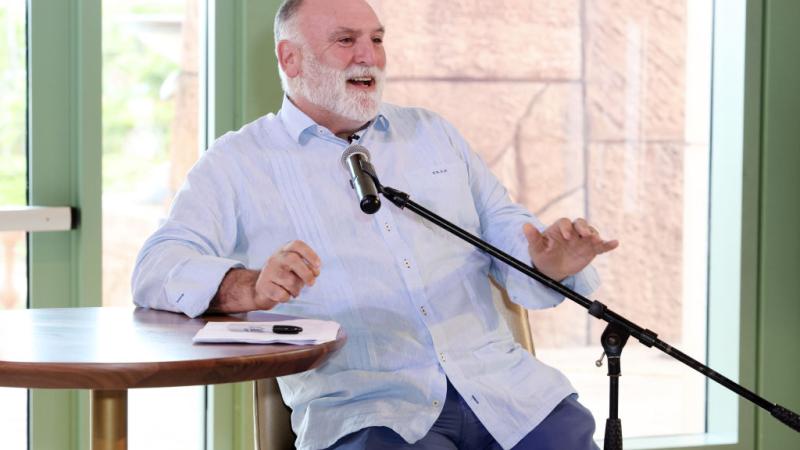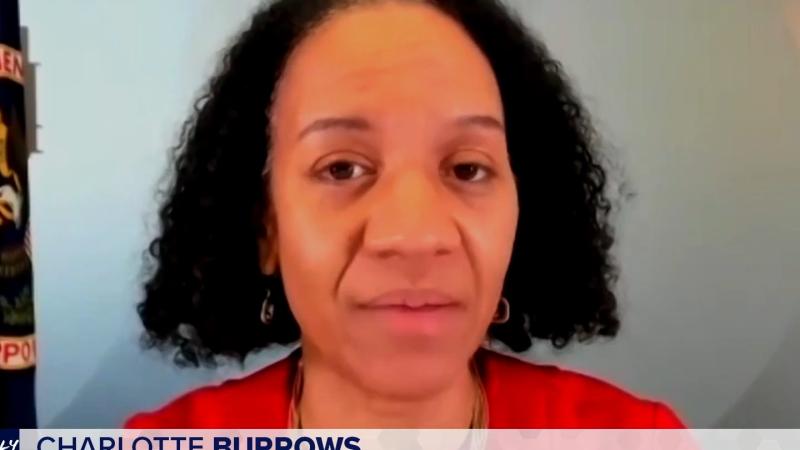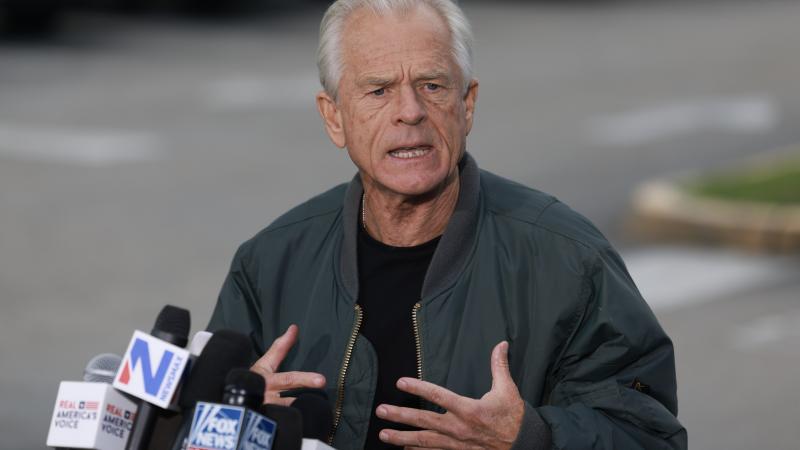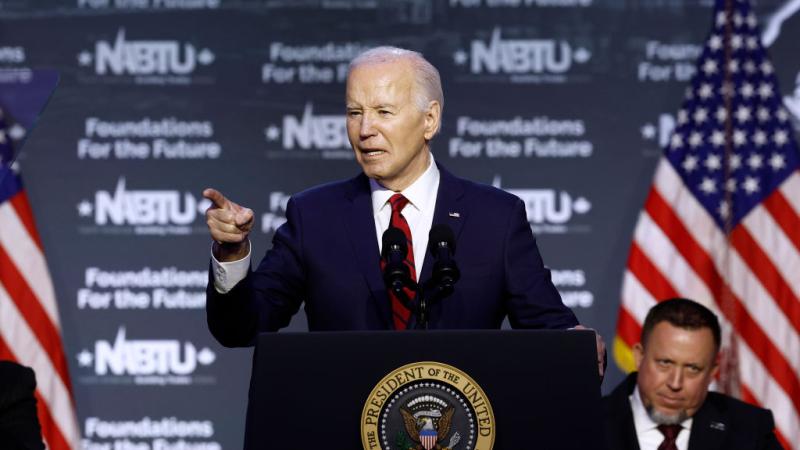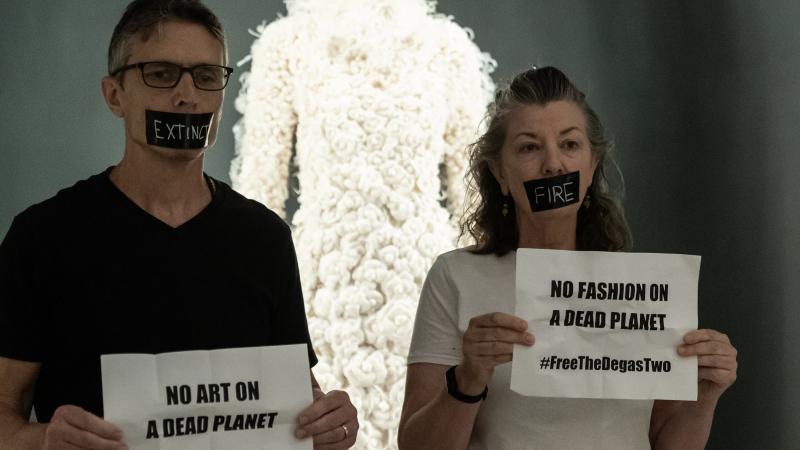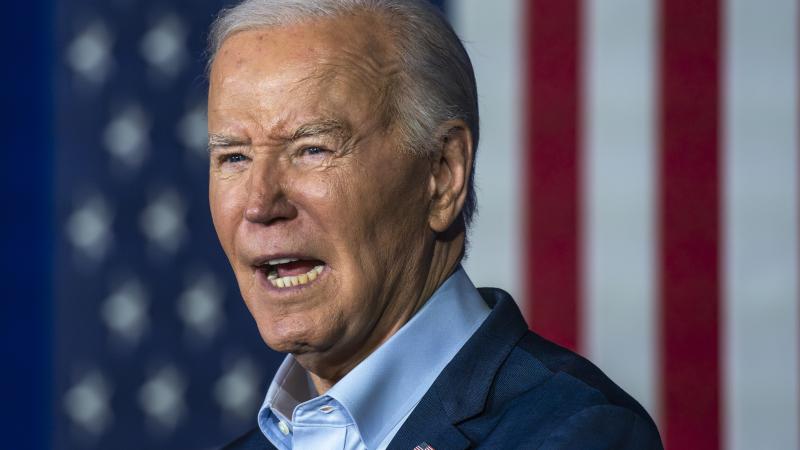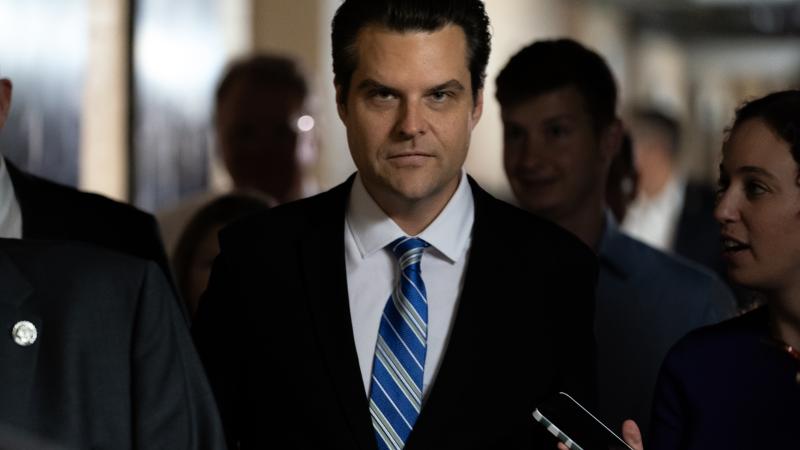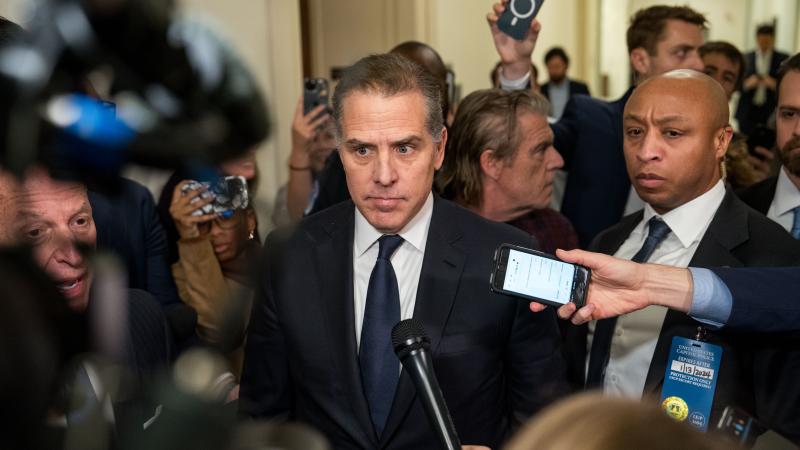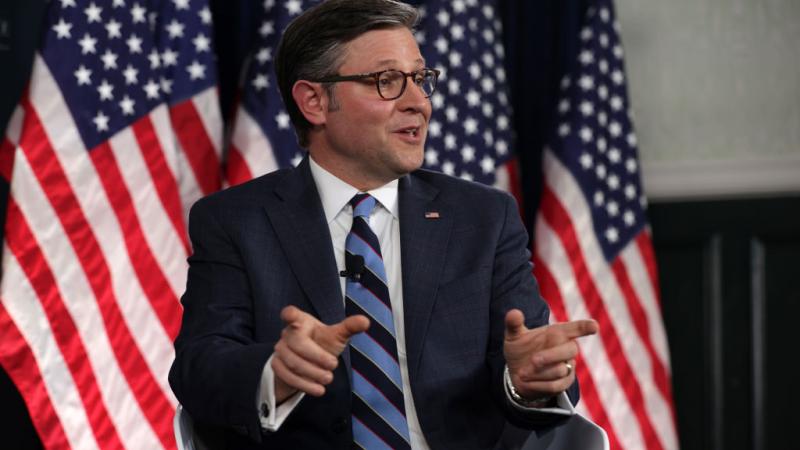Biden chilly towards Palestinian statehood at the UN, at least until the Gaza war ends
The US is throwing cold water on the Palestinian Authority’s bid for statehood at the UN Security Council, but is exploring options to recognize a Palestinian state after the Israel-Hamas war.
The Palestinian Authority this week submitted a bid for recognition as an official state to the United Nations Security Council while some Western powers signaled they may move to recognize such a state.
However, the Biden Administration—despite reiterating its support for a "two state" solution—is signaling that the Palestinian Authority should not move forward with this bid until after a negotiated settlement with Israel is achieved and the Gaza war comes to an end.
Thus, administration officials continue to thread the needle in a complicated effort to balance domestic political pressure from its own base mounting against Israel’s war to destroy Hamas and its plan to achieve a lasting Middle East peace and end the Israel-Palestine conflict.
On Monday, the membership committee of the United Nations Security Council began reviewing an application from the Palestinian Authority for formal recognition as a state according to international law.
The Palestinian Authority, which purportedly governs portions of the West Bank, currently has observer status at the UN, putting it in a similar situation as states like the Vatican.
“We sincerely hope after 12 years since we changed our status to an observer state, that the Security Council will elevate itself to implementing the global consensus on the two-state solution by admitting the state of Palestine for full membership,” Riyad Mansour, the Palestinian Authority’s representative at the UN told reporters on Monday.
The committee said that it would consider the bid this month. The Security Council has debated Palestinian statehood in the past, however, no consensus was ever reached, especially because of the threat of the United States’ veto.
However, amid this latest bid for consideration, some Western powers historically aligned with the American position on the matter have expressed a willingness to move forward with recognition of a Palestinian state, including several NATO allies.
This week, Spanish Foreign Minister José Manuel Albares confirmed his country would move forward with recognizing a Palestinian state by this summer, in part motivated by the reported casualties and destruction in the ongoing war between Israel and Hamas. Hamas took control of Gaza after winning elections there in 2006. Since then, no elections have been held.
“We feel the same solidarity for the 32,000 Palestinians who have been killed as we do for the 1,200 Israelis,” Albares said. “This recognition takes Israel into the equation: The recognition of the Palestinian state is the best guarantee of security for Israel.”
In early March, Spain was joined by Ireland, Malta, and Slovenia. The governments announced willingness to recognize a Palestinian government “for the sake of peace and security,” according to a joint statement.
Earlier this year, a top British diplomat indicated the United Kingdom could move to recognize a Palestinian state after a ceasefire was agreed in the Gaza war.
“It could be something that we consider as this process, as this advance to a solution, becomes more real,” Foreign Minister David Cameron said. “What we need to do is give the Palestinian people a horizon towards a better future, the future of having a state of their own.”
So far, the Biden Administration has been more muted on the United States support for Palestinian statehood, despite espousing that goal as part of its plans for a lasting Middle East peace.
According to senior administration officials, Biden’s team are developing plans to recognize a Palestinian state after the war in Gaza comes to a close, NBC News reported in February.
However, the administration made clear this week that it does not support the Palestinian Authorities efforts to seek recognition before a negotiated settlement between it and Israel.
“We support the establishment of an independent Palestinian state," U.S. State Department spokesperson Matthew Miller told reporters, according to Voice of America.
"That is something that should be done through direct negotiations through the parties, something we are pursuing at this time, and not at the United Nations," he added.
Instead, the Biden Administration is working behind the scenes to bolster the Palestinian Authority to participate in negotiations with Israel, in part by working to secure its governance over the Gaza Strip after the war is over.
Not long after Hamas' October 7 terrorist attack against Israel, President Biden’s high-ranking foreign policy officials began laying the groundwork to support developing the Palestinian Authority to become the governing power in both Gaza and the West Bank. The two territories have been governed separately since 2007 after a civil war between Hamas and Fatah—the party which controls the Palestinian Authority.
But, critics argue that this balancing policy—putting Israel and the Palestinian Authority on equal footing—could unnecessarily extend the current conflict and may contribute to a continued cycle of violence between Israelis and Palestinians.
Victoria Coates, former Trump deputy national security advisor and current Vice President of Heritage’s Kathryn and Shelby Cullom Davis Institute for National Security and Foreign Policy at the Heritage Foundation believes the best way to achieve a peaceful outcome is to allow Israel to finish the war against Hamas.
“You know, it's it may seem counterintuitive, but what the administration is doing is they're currently trying to make an equivalency between the Palestinians and Israel. And they say, oh, you know, the only way to solve this is to get to a two state solution. We need a ceasefire,” she said on the "Just the News, No Noise" television show on Wednesday.
“Absolutely not. Hamas started this. They are the ones who broke the ceasefire on October 7, now more than six months ago, and they're the ones who are going to have to pay,” she added.
“Since about… the 1990s, since the Oslo process, there has been this ongoing effort to kind of reassure the Palestinians that they didn't lose somehow. And that has perpetuated the culture of violence, the culture of resistance, the culture of trying to eradicate Israel, that resulted in October 7. So in many ways, I would say the best thing you can do for the Palestinian people, it is over. This is done,” Coates said.
This is a markedly different approach than the one being employed by the Biden Administration, which sees a Palestinian state as a prerequisite for peace.
Its pursuit of this goal is also linked to its wider regional strategy: securing Saudi Arabia as an ally and facilitating further normalization of ties between Israel and the Arab states. In particular, his administration sees normalization between Saudi Arabia—the leading gulf monarchy—and Israel as a gateway to a more stable region overall.
Saudi Arabia has made it clear that there “will be no diplomatic relations with Israel unless an independent Palestinian state is recognized on the 1967 borders with East Jerusalem as its capital.”
President Biden is also no doubt marketing towards a key domestic constituency as the 2024 presidential election fast approaches, where he appears set for a rematch with his chief political rival, Donald Trump.
Fred Fleitz, the former Chief of Staff of the National Security Council under the Trump Administration, told Just the News last month the Biden administration’s effort to boost the Palestinian Authority while overlooking both corruption and security concerns about the group stems from a naive view of international security and domestic political motivations.
“It’s politics,” Fleitz said, explaining that the Biden campaign is concerned over alienating reliable Democratic Muslim voters in key swing states such as Michigan, with a dense Arab population. Indeed, many of these voters are angry with Biden over what they perceive an abandonment of the Palestinians amid the war, Just the News reported last month.
It remains to be seen whether the United States can convince either the Israelis or the Saudis to cede ground in any negotiation. The Israeli government and public both remain intractable in their opposition to a two-state solution, especially after Hamas’ October 7 terrorist attack.
Further, after Israel allegedly struck an Iranian consulate in the Syrian capital of Damascus last week, tensions between the two countries have ratcheted up. On Saturday, Iran launched over 300 drones and missiles at Israel, marking the first time the Islamic Republic has attacked the Jewish state directly.
Though the attack was extensive, the Israeli military says it intercepting almost all the projectiles, with only a handful landing in the country. The United States used its assets in the region to help the Israeli military intercept missiles and drones launched from Iran. Israel also reportedly received help from France, the United Kingdom, and its Arab neighbor, Jordan.
In a call with Israeli President Benjamin Netanyahu, President Biden reportedly urged the country not to retaliate against Iran's attack and informed him that the U.S. would not participate in a retaliatory strike.
The Facts Inside Our Reporter's Notebook
Links
- told reporters on Monday
- recognizing a Palestinian state by this summer
- a joint statement
- part of its plans
- NBC News reported
- spokesperson Matthew Miller told reporters
- governed separately since 2007 after a civil war
- wider regional strategy
- reported last month
- remain intractable
- allegedly struck an Iranian consulate
- tensions between the two countries
- almost all the projectiles
- reportedly received help
- reportedly urged

